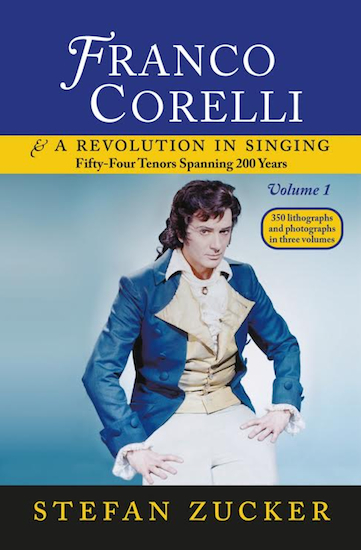Book on tenor Corelli covers the ins and outs of opera singing, with love

“Franco Corelli and a Revolution in Singing” by Stefan Zucker is a Valentine’s Day gift to myself. Like the Energizer battery, it keeps on going. The photographs and illustrations are truly magnificent. I turn to this book over and over again to gain both knowledge and inspiration from the great and varied opera tenors covered in the book.
I heard many of the great tenors — Benjamino Gigli and Tito Schipa at their remarkable “farewells”; Mario Del Monaco, Corelli himself and Carlo Bergonzi in their prime, and I had a handshake with Giovanni Martinelli. Jan Peerce, Richard Tucker and Ferruccio Tagliavini each had a strong vocal identity. Giuseppe Di Stefano and Jose Carreras too soon became vocal flotsam and jetsam, but earlier had undeniably gorgeous qualities to their voices. Luciano Pavarotti at times had a magic that cannot be explained in words, but his voice wasn’t as beautiful or expressive as Gigli.
Zucker gives long pithy phrases on the vocal gifts and flaws of these artists and much more than a dollop of fresh insights about what used to move the masses and what currently moves them. The chapters on the vocal arrival of Del Monaco, with his golden voice of steel and grit, and Corelli’s voice of power and pathos are remarkable.

Brooklyn Boro
View MoreNew York City’s most populous borough, Brooklyn, is home to nearly 2.6 million residents. If Brooklyn were an independent city it would be the fourth largest city in the United States. While Brooklyn has become the epitome of ‘cool and hip’ in recent years, for those that were born here, raised families here and improved communities over the years, Brooklyn has never been ‘uncool’.